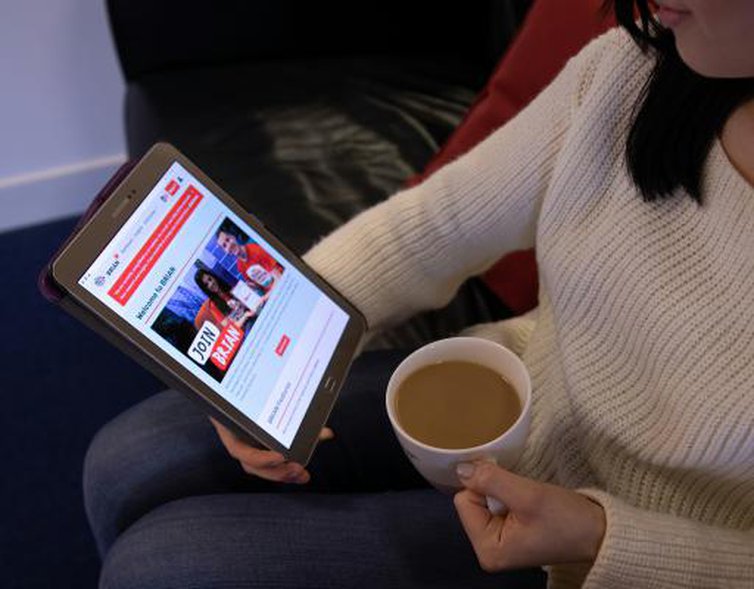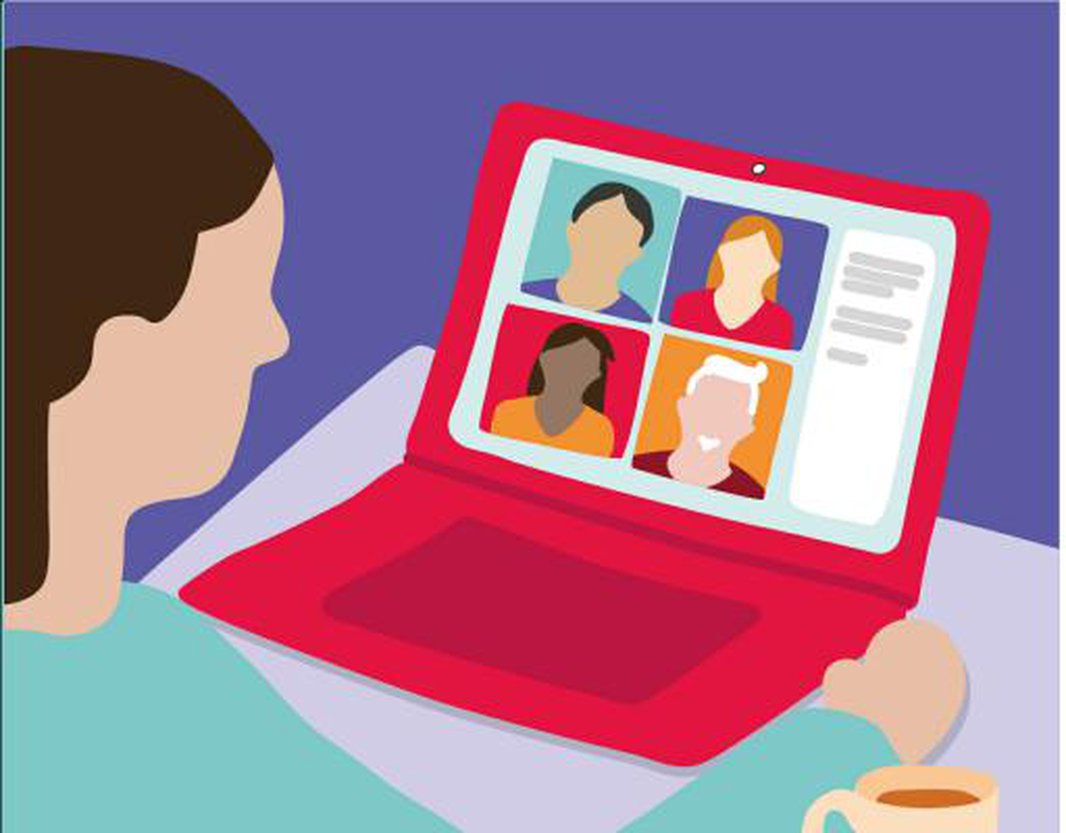Differences in brain tumour care
Our community has told us about the differences in their experiences of brain tumour care, including their diagnosis, treatment pathways and support systems through completing our Improving Brain Tumour Care Surveys. The following results are based on 1494 experiences in the last two years (until September 2021). The people who shared these experiences either had a diagnosis themselves, or were carers, partners and family members and those whose loved one has died. We have delivered these results to their neuroscience centres and to the Tessa Jowell Centres of Excellence programme to drive continuous improvement in healthcare. Join the involvement network to contribute to the development of the surveys in 2022 and help create change. Read the detailed results.

Share your experiences and help create change
By taking part in our Improving Brain Tumour Care surveys and sharing your experiences, you can help us find differences in brain tumour care as well as improve treatment and care for everyone affected by a brain tumour.
5 main differences in brain tumour care
1
41% people need more emotional support than they’re getting
Right from diagnosis, all the way through active treatment and recovery, then rehabilitation and living with the effects of a brain tumour, people have severe emotional needs resulting from their devastating illness. In some cases, there simply isn’t enough therapeutic support to help people and their families to cope with their prognosis and the changes in their lives and make good decisions about how to move forward.
What we’re doing to make a change
We have defined a national standard for brain tumour care and support (see our step by step guide) and we are adding to that with an emotional and mental health pathway (join our involvement network to participate.) With this we’ll be able to better understand the gaps in this type of support and how we can help to fill them. We already have some services which focus on emotional support eg our relationship service, support line and peer support groups (visit our 10 Ways we can help) and are adding more next year.
2
65% people have to visit A&E on their way to being diagnosed
For some people a brain tumour diagnosis comes as a catastrophic event without warning and for others it can be a prolonged struggle to get to the true cause of their symptoms. The result is that a majority of people visit A&E on their path to diagnosis. This can mean that people do not have expert specialist support and information right from the start of their journey.
What we’re doing to make a change
Our last Headsmart campaign halved diagnosis time for children from 13 to 6 ½ weeks and we now aim to transform awareness of signs and symptoms for adults in the same way. Our optical engagement manager, Lorcan, has trained 4700 optical professionals in a year to respond to the signs and symptoms of brain tumours. We are supporting large scale testing in Scotland of the Dxcover diagnostic blood test which GPs will use to pick up suspected brain tumours earlier. Join our involvement network to get involved in our diagnosis campaigns.

3
People aren’t told about basic support and information
For instance, 45% of people haven’t heard about charity support, 68% of people haven’t been told about financial and benefits help and 38% of people haven’t received any information about their tumour type.
It can be overwhelming to receive a brain tumour diagnosis and very easy to miss information and sources of help. That’s why it’s vital that people receive basic support and information early. These are really easy things to improve.
What we’re doing to make a change
We’re offering our help and support services (10 ways we can help) to 50 adult and paediatric neuroscience centres for the patients and families they support. If you don’t our services in your centre then please email us [email protected] . You can also read our Step by step guide, which walks you through the journey with short, simple actions and support services. We are tracking our joint progress towards better signposting using the Improving Brain Tumour Care surveys.
4
65% people say they don’t participate in research
We know that we need more progress in treatments. People are willing to try different things and want to see this progress, both in their own treatment and in that of people diagnosed in future. Everyone could be participating in research, whether that’s clinical trials, donating their data, profiling the genetics or biobanking samples of their tumour. Whether people aren’t aware of how their experience is helping to change things for the better or whether they have simply not received these opportunities, we need to see research available to everyone who wants to participate.
What we’re doing to make a change
Together, we’re funding national research initiatives like BRAIN MATRIX to make research faster and more widespread. We’re funding ground-breaking research into non-conventional treatments like the Sativex cannabinoid drug trial. Join our involvement network and you can feed back on the latest research projects.

5
Patient experience varies hugely between centres
Some centres are excelling in all areas, whereas some centres fall short in particular areas. For example, good access to a dedicated key worker or clinical nurse specialist can be vital to your experience but this ranges from 49% people having good access to 79%, depending on the centre.
What we’re doing to make a change
We started the Improving Brain Tumour Care surveys to give everyone a strong voice about their experience of care and we share the anonymised results of these to the neuroscience centres which helps them achieve their aim of continuous improvement. The surveys also feed into the assessment of Tessa Jowell Centres of Excellence – you can find the 17 centres so far awarded excellence status on our What’s Where map. Our Step by step guide sets out what should happen at each stage so you can check everything’s being covered as it should be.
Join the Involvement network to help create change and ensure your voice is heard.
What can you do?
If you feel like you’re experiencing any of these difficulties, then there are things that you can do to make a change in your own care.
- Contact our Support and Information team, who can talk through what support is available, what might be helpful and can signpost you to the relevant services. Find out more about our services and support groups. Talking to others in a similar situation, or finding more support elsewhere could help in those moments.
- Tell your medical team about our organisation! Hopefully they can share our details with others in a similar situation moving forward – remember your voice matters and can change situations for others in the community.
- Make sure you note down the name and contact details of your Clinical Nurse Specialist, and ask when and how you should contact them. If you don’t have a Clinical Nurse Specialist, ask for the name and contact number for another member of the team that you should contact with any questions. Remember don’t be afraid to push for this information.
- Ask to see your care plan and go through this together with your medical team or Clinical Nurse Specialist, to make sure you understand and are happy with it. This will help you to understand what support is available, and other organisations that you can contact if you are having trouble contacting your Clinical Nurse Specialist.
Finding out about different research types
- Remember that there are different types of research that you can participate in. It’s not just clinical trials, but opportunities like brain donation, data donation which helps researchers identify new opportunities to improve treatments, ‘biobanking’ of tumour samples, analysing the genetics of your tumour, as well as clinical trials. You should always ask for flash freezing to preserve your tumour
- Ask about access to research nurses. Many centres will have dedicated research nurses who involve in research and clinical trials. They will be able to fill you in on the different trials available, but this may vary from centre to centre.
- Know what to do if you feel like you’re not getting the right level of care or you have any concerns about what’s happening. You can read more about this on our ‘What to do if things go wrong’ page.
- Consider accessing a Second Opinion. You have the right to ask for a second opinion and in our experience supporting people affected by a brain tumour, healthcare professionals are very open to allowing second opinions, recognising the sensitive nature of the diagnosis and subsequent treatment and its impact. You should always feel able to approach your healthcare team, either your GP or your specialist, to discuss a second opinion.
If any of these areas for Improvement raise concerns for you and your treatment and support then please speak to us: [email protected] 0808 800 0004